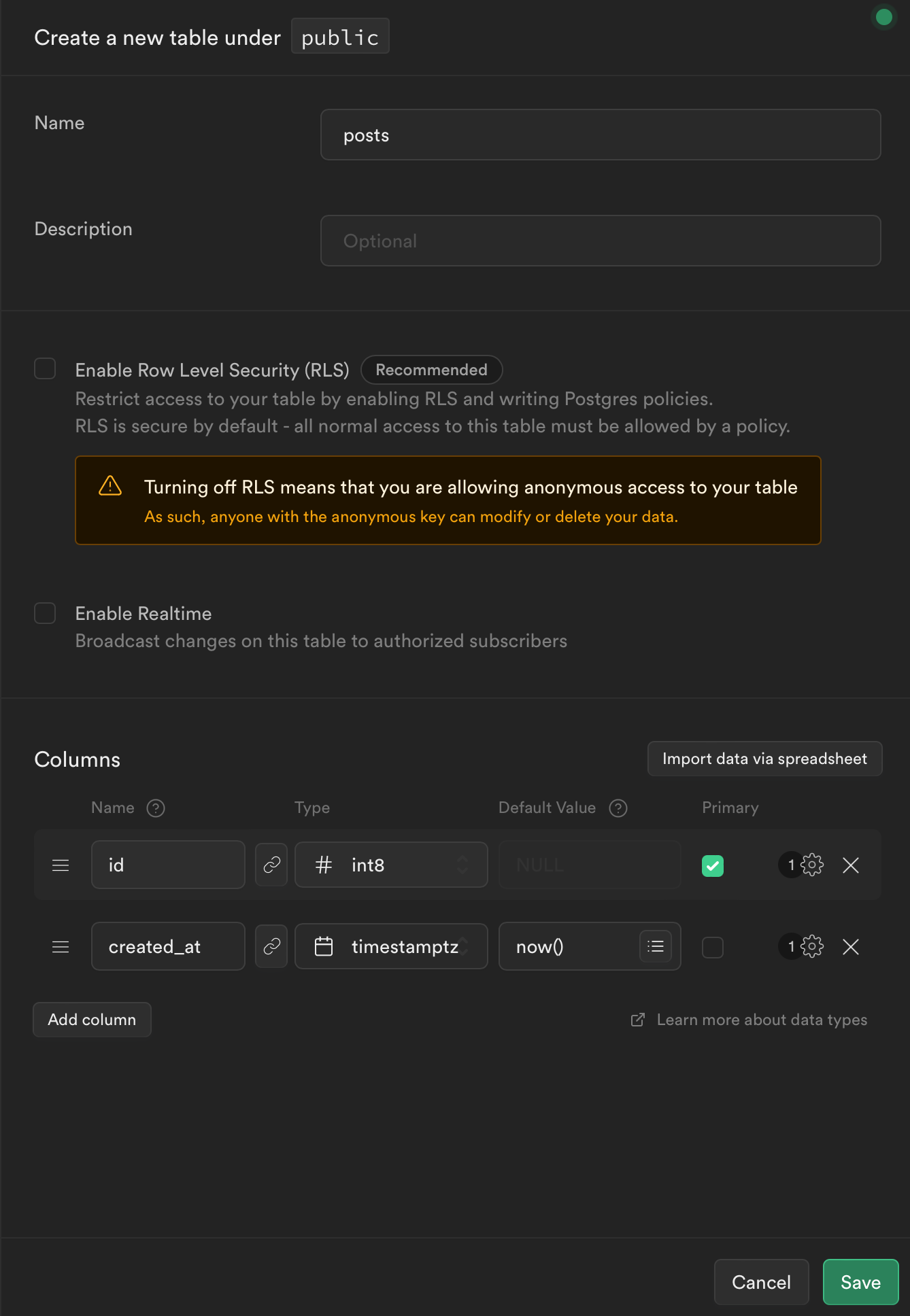Package Exports
- @limitkr/supabase-hooks
- @limitkr/supabase-hooks/dist/index.js
This package does not declare an exports field, so the exports above have been automatically detected and optimized by JSPM instead. If any package subpath is missing, it is recommended to post an issue to the original package (@limitkr/supabase-hooks) to support the "exports" field. If that is not possible, create a JSPM override to customize the exports field for this package.
Readme
supabase-hooks
React hooks library for Supabase ⭐
Contents
Install
npm install @limitkr/supabase-hooks
# or yarn package manager
yarn add @limitkr/supabase-hooks⚠️ This is an experimental repo, still under development.
Usage
NextJS Example
Import the <SHProvider /> at the project root:
import { createClient } from "@supabase/supabase-js";
import { SHProvider } from "@limitkr/supabase-hooks";
import type { AppProps } from "next/app";
import type { Database } from "database.types"; // Supabase Database types
const client = createClient<Database>(
/* Supabase URL */,
/* Supabase Key */
);
export default function MyApp({ Component, pageProps }: AppProps) {
return (
<SHProvider supabaseClient={client}>
<Component {...pageProps} />
</SHProvider>
)
}And use the hook you want anywhere on the page.
import { useDatabase } from "@limitkr/supabase-hooks";
import type { Database } from "database.types"; // Supabase Database types
export default function MyPage() {
const { data: posts, isLoading } = useDatabase<Database, "posts">("posts");
return isLoading ? (
<div>Loading...</div>
) : (
<div>
{posts.map((post) => (
<p>{post.title}</p>
))}
</div>
);
}Breaking changes
From version v1.0.0-beta.6, the second generic type must be put in the useDatabase hook to provide the correct type hint. For example:
const { data } = useDatabase<Database, "posts">("posts");Run the Test
This project uses Jest's setupFiles feature to change the process.env variable before running the test. So you need to
read the description below if you want to run the test.
Setup
At the root of the project, create a .jest folder. You can also create it with the command below:
mkdir .jestAnd then create the setEnvVar.js file in the folder. assign the env variables in the setEnvVar.js.
// .jest/setEnvVar.js
process.env.SUPABASE_URL = /* Your Supabase URL */
process.env.SUPABASE_ANON_KEY = /* Your Supabase Key */And create new empty supabase instance for testing, and create a new table like the image below.

Now you can run the test!
API
useClient<T>()
const useClient = <D extends BaseDatabase>() =>
ReturnType<typeof createClient<D>>;Returns the Supabase client.
useDatabase<T, K>(from)
const useDatabase = <D extends BaseDatabase = any>(
from: TableKey<D>,
options: UseDatabaseOptions
) => {
return { data, isLoading, insertData, updateData, upsertData, deleteData };
};Returns 4 Supabase database methods: insert, update, delete, upsert. Returns 2 Variables:
isLoading- Variable that indicate whether data is being loaded.data- fetched data that Select a table using the 'key' value defined in thefromparameter.
You can use filtering in some database methods. For example, to delete data when a specific ID matches:
import { useDatabase } from "@limitkr/supabase-hooks";
export default function Example() {
const { deleteData } = useDatabase<Database, "posts">("posts");
return (
<button onClick={async () => await deleteData.eq("id", 1)}>Delete</button>
);
}⚠️ In the data fetch(
select) method, filtering options will be added soon.
from: TableKey<D> | string
The table name to operate on.
ℹ️ If you use a database type extracted from 'Supabase' into the generic type, you can get a better type hint.
options: UseDatabaseOptions
interface UseDatabaseOptions {
selectSingle?: boolean;
}selectSingle: boolean
If true, one single object type is returned, not an array type. This is the same method as below.
await supabaseClient.from(/* from */).select().single();